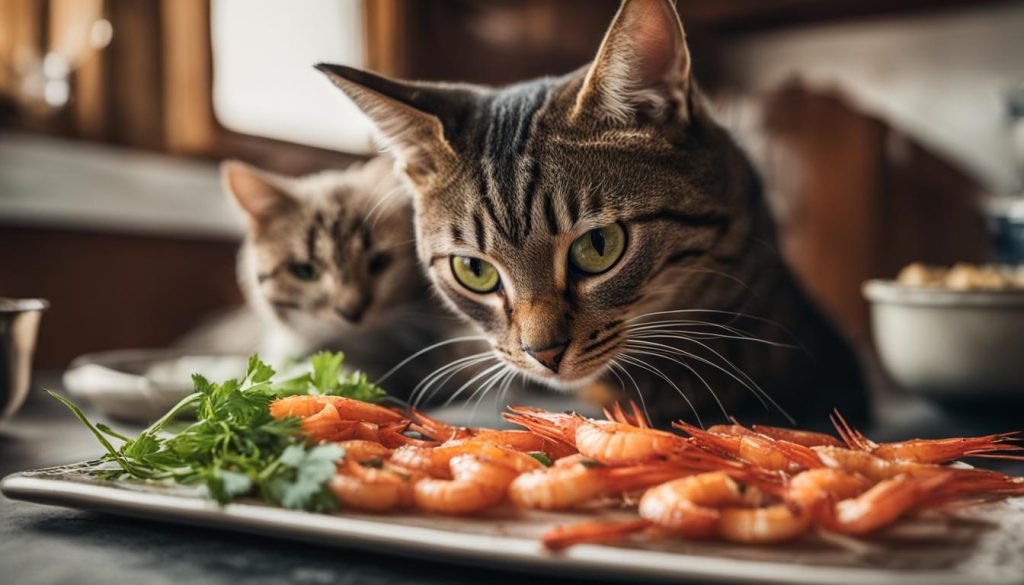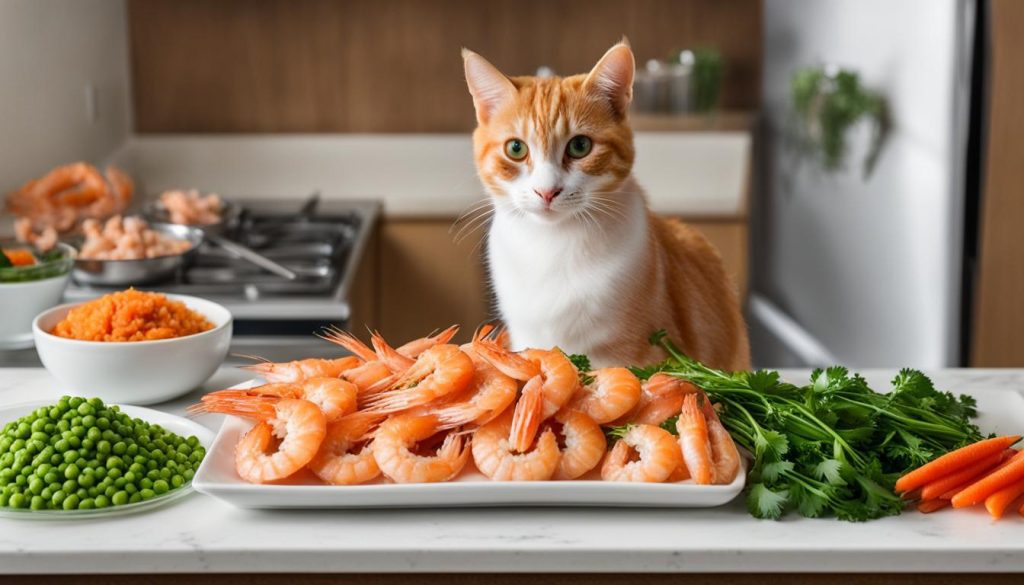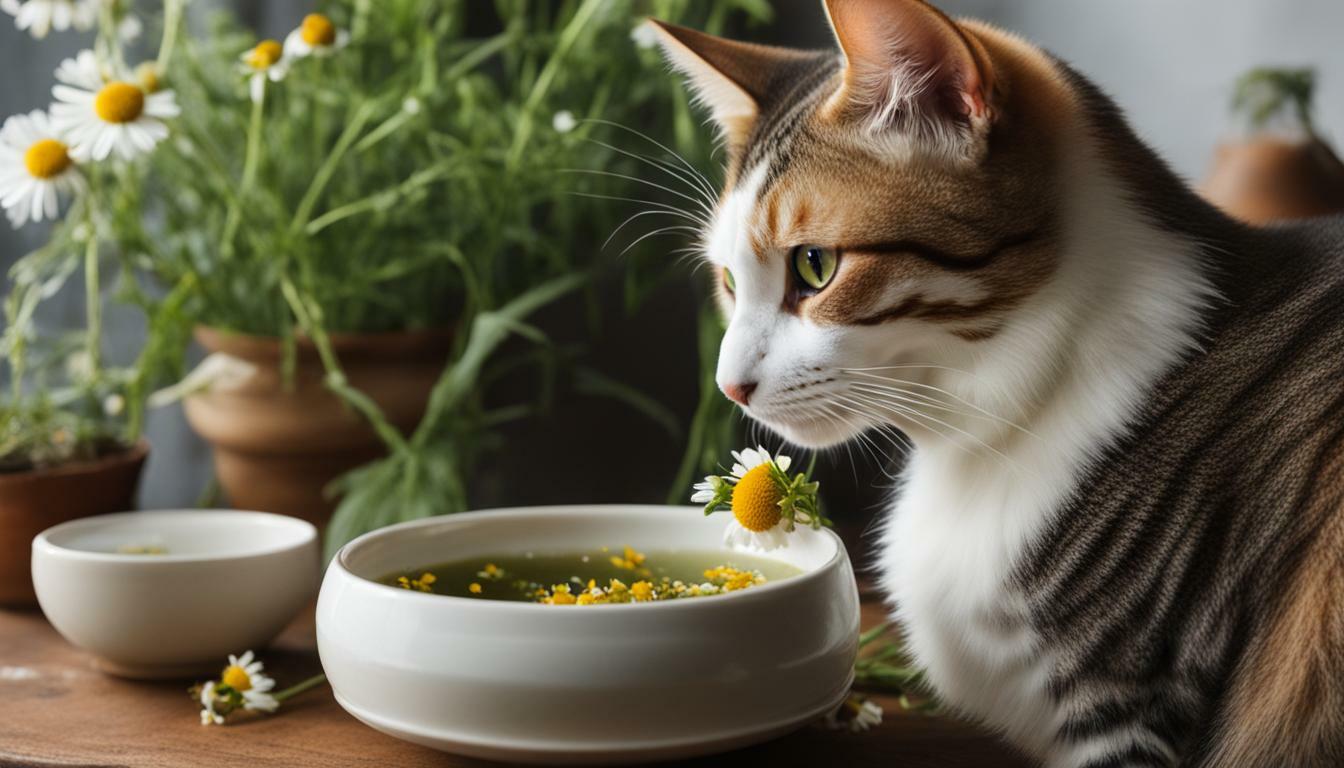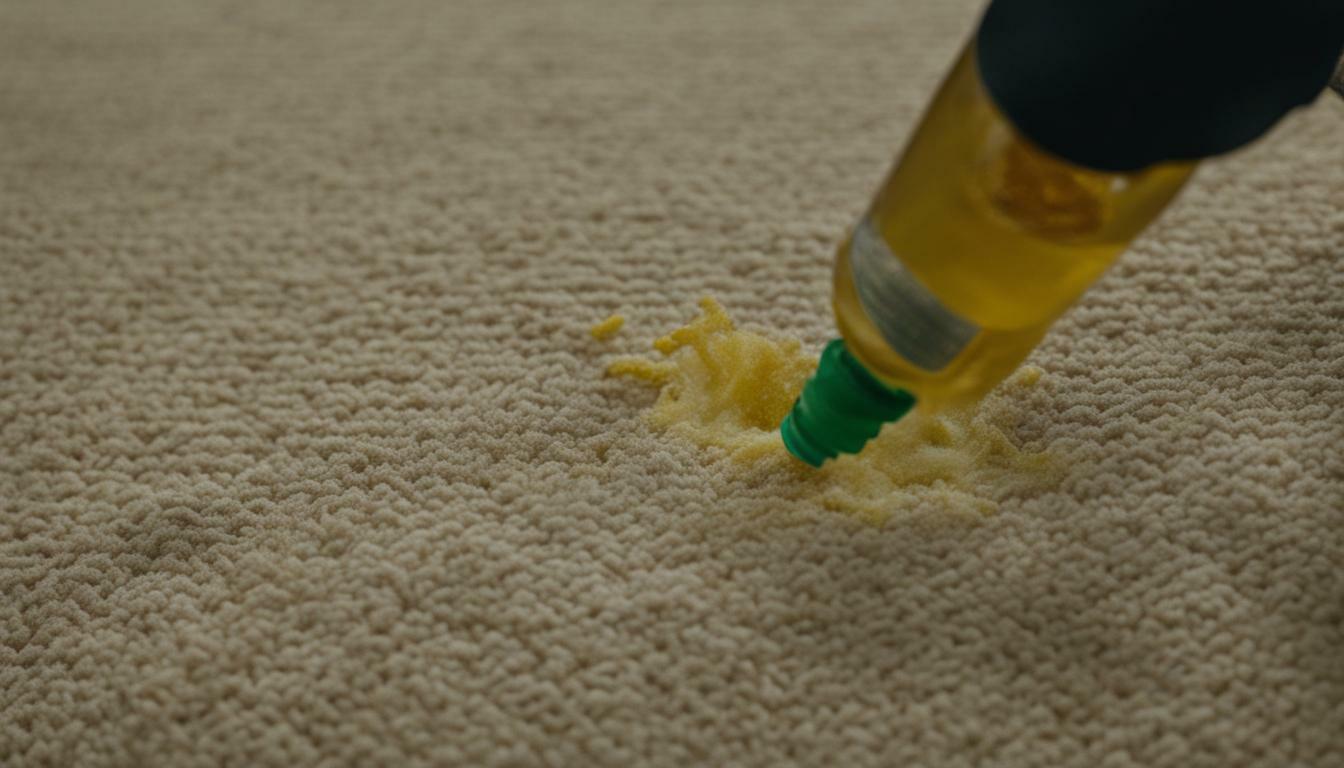As a cat owner, I often find myself wondering what types of food are safe and nutritious for my furry friend. One question that often comes to mind is whether cats can eat prawns. After conducting research and consulting with veterinarians, I am here to share the answers and provide essential tips for ensuring your cat’s safety when it comes to prawns.
Prawns, when given in moderation, can be a healthy treat for cats. They are packed with protein, low in fat and calories, and contain important nutrients such as omega-3 fatty acids, vitamins, and minerals. However, it’s crucial not to replace balanced nutrition with prawns and to be cautious of potential risks and allergic reactions.
Can Cats Eat Prawns? In short, yes they can – but not too often.
- Cats can eat prawns in moderation, as they are a good source of protein and essential nutrients.
- It is important to remove the shells before feeding prawns to cats to prevent choking hazards and digestive issues.
- Cooked prawns are safer for cats, as raw prawns may contain harmful pathogens.
- Other cat-friendly seafood options include tuna, salmon, whitefish, or cod, all cooked and without added seasonings.
- Consulting with a veterinarian is recommended before introducing any dietary changes or treats to a cat’s diet.
The Safety of Shrimp for Cats
When it comes to feeding shrimp to your furry feline friends, it’s important to consider their safety. While shrimp itself is generally safe for cats to eat, there are a few factors to keep in mind to ensure their well-being.
First and foremost, plain and unseasoned shrimp is the safest option for cats. Shrimp that has been cooked with seasonings, butter, or oils can potentially cause gastrointestinal upset or even pancreatitis in cats.
Additionally, the tails of shrimp can pose a choking hazard for cats. Ingestion of large amounts of shrimp tails can lead to gastrointestinal upset and constipation. Therefore, it’s essential to remove the tails before feeding shrimp to your cats.
Furthermore, raw shrimp may contain harmful bacteria that can infect cats. To eliminate this risk, it is crucial to cook shrimp thoroughly before offering it to your feline friends. This ensures that any potential pathogens are destroyed and makes the shrimp safe for consumption.
Lastly, it’s worth noting that some cats may have allergies to shrimp. It’s important to monitor your cat closely for any adverse reactions, such as vomiting, diarrhea, or allergic symptoms, after introducing shrimp into their diet.

Providing shrimp to your cats as an occasional treat can be a delightful experience for them. However, always prioritize their safety and well-being by following these guidelines. By doing so, you can enjoy sharing a tasty and safe treat with your beloved feline companions.
Nutritional Value of Shrimp for Cats
Shrimp can be a nutritious and tasty treat for cats, offering a variety of health benefits. It is a good source of protein, which is essential for muscle growth and repair in cats. Additionally, shrimp contains other important nutrients such as phosphorus, selenium, choline, copper, iodine, and vitamin B12.
The protein in shrimp supports a cat’s overall health and well-being. It aids in the development and maintenance of strong muscles and can help with tissue repair. Shrimp also provides important nutrients like phosphorus and selenium that contribute to various bodily functions, including bone health, cell repair, and the synthesis of DNA.
Furthermore, shrimp is rich in choline, which plays a vital role in brain function and development. It is essential for neurotransmitter synthesis and supports memory, learning, and cognitive function. Additionally, shrimp contains copper and iodine, which are necessary for the proper functioning of the thyroid gland and the production of thyroid hormones.
Moreover, shrimp is a natural source of vitamin B12, which is crucial for the formation of red blood cells, nerve function, and DNA synthesis. Vitamin B12 also helps maintain a healthy nervous system and supports energy metabolism in cats.
Shrimp is also packed with antioxidants that protect cells from damage caused by free radicals. These antioxidants promote healthy skin and a shiny coat, reduce inflammation, and support a cat’s overall immune system.
While cats do not require shrimp in their regular diet, it can be a delightful and nutritious treat when given in moderation. The protein, essential nutrients, and antioxidants found in shrimp can contribute to a cat’s health and vitality.
Preparing Shrimp for Cats
When preparing shrimp for cats, the safety and proper cooking methods are crucial to ensure a healthy treat. To start, it is essential to cook shrimp without any added spices, salt, garlic, or onion, as these can be harmful to cats’ digestive systems. The safest cooking methods for shrimp are boiling or steaming. This ensures that the shrimp is thoroughly cooked and eliminates any potential pathogens that may be present in raw shrimp.
To further ensure the safety of cats when consuming shrimp, it is necessary to remove the shell. The shell can pose a choking hazard or cause digestive issues if ingested. Additionally, it is recommended to remove the heads and tails of the shrimp. While some cats may tolerate eating these parts, it is best to err on the side of caution and remove them.
By properly preparing shrimp for cats, it can be a safe and enjoyable treat. Remember to cook the shrimp without any harmful additives, remove the shell, and consider removing the heads and tails. This ensures that cats can indulge in shrimp without any potential hazards.

Continue reading below for more information on the nutritional value of shrimp for cats.
Conclusion
When it comes to treating our feline friends with seafood, it’s crucial to maintain a balanced diet and consult with a veterinarian. While prawns can make a healthy treat for cats, they should be given in moderation and properly prepared. It’s important not to rely solely on prawns or any other specific food to meet a cat’s nutritional needs.
Before introducing any dietary changes or treats, seeking guidance from a veterinarian is recommended. They can provide expert advice tailored to your cat’s specific needs and ensure that the treats you offer are safe and appropriate.
Aside from prawns, there are other cat-friendly seafood options to consider. Tuna, salmon, whitefish, and cod are all suitable choices, as long as they are cooked and free from added seasonings. These options provide variety and additional sources of essential nutrients for your cat’s overall health and well-being.
When it comes to treat feeding, responsible portion control is essential. Monitoring your cat for any adverse reactions is also important. Every cat is unique, and what works for one may not work for another. By being mindful of your cat’s dietary needs and considering their individual sensitivities, you can ensure a balanced and enjoyable treat experience for your feline companion.
FAQ
Can cats eat prawns?
Yes, cats can eat prawns. However, it is important to feed them in moderation and take some safety precautions.
Is it safe for cats to eat prawns?
Yes, prawns can be a safe seafood option for cats when prepared properly and given in moderation.
Are prawns beneficial for a cat’s health?
Prawns are a good source of protein, low in fat, and contain essential nutrients that can benefit a cat’s overall health and well-being.
What are the potential risks of cats eating prawns?
Cats may have allergies or adverse reactions to prawns, and raw prawns may contain harmful bacteria. It is important to feed cooked prawns and monitor for any adverse effects.
Can cats eat prawns with the shell?
It is best to remove the shell before feeding prawns to cats to prevent choking hazards and digestive issues.
Can I feed my cat other seafood besides prawns?
Yes, other cat-friendly seafood options include tuna, salmon, whitefish, and cod, all cooked and without added seasonings.
How should I prepare prawns for my cat?
When preparing prawns for cats, it is important to cook them thoroughly, remove the shell, and avoid adding any spices, salt, garlic, or onion.
Is it necessary to consult a veterinarian before feeding prawns to cats?
Consulting with a veterinarian is recommended before introducing any dietary changes or treats to a cat’s diet.
How can I ensure responsible treat feeding for my cat?
Responsible treat feeding includes portion control, monitoring for any adverse reactions or allergies, and maintaining a balanced diet for your cat.
What are the alternatives to prawns for cats?
Tuna, salmon, whitefish, and cod are all cat-friendly seafood options that can be fed to cats in place of prawns.






